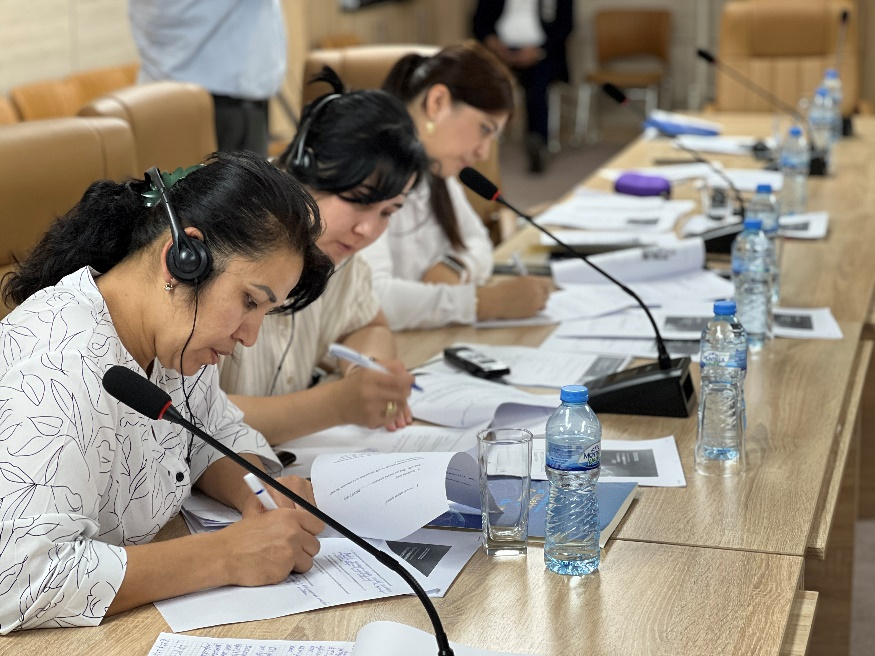Uzbek officials learn how EU applies plant health rules on exports
31.07.2023 2000Technicians come to grips with pest risk analysis, rules on pesticide use
Few trade areas are as complex, yet key to consumer protection as rules on food imports. The standards and requirements have to strike a fine balance: ensuring food is safe without being overly protectionist, thereby harming other countries’ exporters.
Rules on how to develop standards for human, animal and plant health while not impeding trade, are set out in the WTO Agreement on the Application of Sanitary and Phytosanitary Measures (SPS). They must also follow international standards such as those of the International Plant Protection Convention.
Uzbek technical experts were trained on key aspects of these requirements to equip them to implement the rules when the country joins the WTO.
Three seminars, held in Tashkent, were organized with funding from the European Union under the project Facilitating the process of Uzbekistan’s accession to the WTO.
Two seminars were on the topics of pest risk analysis (12-16 June), and how pesticides are used (19-23 June). Under the lens were the rules and practices of the European Union, an attractive market for exports from Uzbekistan.
The seminars focused on practical group work. With pest risk analysis, attendees developed scenarios to assess pests populations, such as those of melon and cherry flies, and the pomegranate fruit pest. They also learned the ropes on registration procedures for pesticides and rules on their marketing.
Transparency is key
A third workshop (20-24 June) showed how to set up and operate an SPS National Enquiry Point (NEP) and a National Notification Authority (NNA). These are mandated for WTO members and ensure transparency on SPS measures. The NNA notifies other countries about changes to SPS measures; the NEP answer questions other WTO members might have about SPS measures in place.
The session also introduced attendees to the WTO’s new ePing platform for measures on SPS, which enables the digital tracking of measures.
Attendees praised the practical use of the training. Mamatkulov Zokirjon, lead specialist of Uzbekistan’s Agency for Technical Regulation, said it was ‘a great resource to obtain the necessary information.’
Thirty-eight Uzbek officials from agencies involved in SPS matters benefited, including the Agency of Plant Protection and Quarantine, the Sanitary Epidemiological Welfare and Public Health Committee and the State Committee of Veterinary and Livestock Development,
About the project
The ITC is the implementing partner of the European Union’s Facilitating the process of Uzbekistan’s accession to the WTO project. The five-year initiative supports Uzbekistan's negotiations at the WTO and helps develop technical skills to implement its rules. The project’s ultimate objective is to contribute to the country’s economic development.

